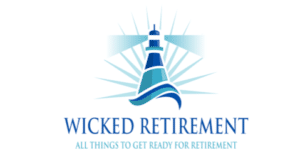this post may contain affiliate links. Check our disclaimer for more info.
Should I Sell My House For Retirement?
Selling your house is a huge decision, for most of us its where we have much of our net worth, tapping into the equity you may have in your house may be your best option for having an amazing retirement.
Retirement is the stage in life where you leave your job and cease to work. It leaves the retiree with different options to choose from on how they should spend their time. According to Ted Roosevelt, it is a time where you can “do what you can, with what you have, where you are.” Quite frankly, Teddy summed up retirement perfectly. You have the option to travel, take up a new hobby or volunteer in your community.
One of the choices that retirees face is whether they should sell their house for retirement. If you see yourself traveling or visiting friends a lot, then selling can be an option for you. Now, if you think that you’ll still be working well after your retirement, you might not want to sell your house.
The fact that you are researching about selling your home for retirement means either you’ll be retiring soon, planning to retire soon or is just putting together a retirement plan early in your life. Whatever the reason you have behind for landing in this article, always remember that the decision still falls on you. The pros and cons of selling your house for retirement in this article will just guide you into making the most acceptable decision for you.
The Pros of Selling your House for Retirement

Retirees sell their homes for so many different reasons. Some regret selling and others say that it was one of the best decisions they made. To stop you from regretting your decision of selling your house in the future, let’s explore a few reasons why retirees sell their homes.
Additional cash for their retirement account.
The reason why this is one of the top pros is that many are entering retirement without enough money put away.
Long-time homeowners have the advantage of tapping their equity and using the additional cash to increase their retirement account. A wealth manager of a certain company gave an estimate an exclusion of up to $250,000 capital gain from sales for single owners and up to $500,000 for married ones.
You also have the option to buy a smaller property and invest the remaining money you have for a possible increase in income. For retirees in their golden age, investing might not be the best route to take.
Fewer maintenance costs.
Owning a house means that you also shoulder the maintenance costs that come with it. Larger homes logically mean higher maintenance cost. Older homes also require a lot of maintenance due to wear and tear. Selling your house would cut down or eliminate this cost depending on whether you plan to rent or buy a smaller property.
Smaller living space for easy management.
As you age, your needs change. Maybe you bought your current home to house a certain number of family members before. Now that you’re retiring and your kids have moved out of the house, those extra rooms are now seldom used. You still pay the same amount of utility bills for heating and cooling those extra rooms even though it is just you or you and your partner living in it. To many, they consider having too much space is not a cost-effective way of living.
Maybe your current home has stairs, and we all know that stairs are a challenge for seniors. For many retirees, stairs are just an accident waiting to happen. Therefore, they prefer to own or rent a property that does not have stairs. Others would prefer to have a smaller space so that everything is in easy reach.
If you’re looking for more info on reducing what you need check out my post on Downsizing for Retirement
Opportunity to relocate and meet new people.
Back when you looked at the location of your current home, your priorities were different. You wanted something close to the kid’s school, close to where you work or maybe close to a dog park. Now that your priorities have changed, the location of your home might not jive with them anymore. Rethink your priorities again and scout for properties that are more in tune with your current needs.
A change in location also brings up the chance to meet other people and form new bonds. Allowing you to expand your horizon and try many different things you haven’t tried before. You can relocate to a different state where you have the opportunity to be closer to nature, meet other retirees like you or discover something about new about you.
The Cons of Selling your House for Retirement.
Where there are pros, of course, there are cons. The following are just a few of the cons of selling your house for retirement.
Renting cost.
If you’re not planning to buy a smaller property with the money you get from selling your home, then the increasing rental cost would be one of the cons you will want to consider. Be prepared to pay an increasing amount of rental cost even if you chose a rent controlled property.
No more/less asset increasing property.
If you don’t own other appreciating asset/property and you don’t plan on just downsizing into a smaller property you’ll buy, selling your house would mean that you are letting go of the only appreciating asset you own. You will no longer earn equity and suffer the increasing rental cost without a fall-back plan.
This could be a very risky step for you because you might end up spending all your retirement fund into paying rent regardless if you stay in a rent controlled property.
Paying mortgage (again).
Retirees who plan to downsize/buy a new property will suffer paying the new mortgage on their new home if they don’t have enough money to buy outright. Some are just to burned up to go through the process again. Also, a house mortgage for a retiree has a chance of being disapproved due age and other factors.
Location.
Location plays a big role during your retirement. If you have sold your house and is planning to either buy or rent a property, you are looking for a location that would suit your need. Retirees who are in their golden age often prefer to be close to a hospital or close to a family member. This could be very tricky because you will have to adjust your expectation based on the available properties in the market.
Looking for a condo? Check out Rick Atkinson’s post Should You Trade Your House for a Condo or Move to Independent Living?
Should I Sell My House for Retirement – Related Questions
Is downsizing house good for retirement?
This is a good option if you have enough to fund your new retirement house. Others shy away from this option because of the possibility of paying another house mortgage. But sometimes, downsizing could mean renting a smaller unit. If you plan to rent, then do the math and compute the cost of renting versus the cost of ownership so that you have an idea how much of your retirement money would go to renting.
Is renting after retirement better?
Retirees who plan to travel a lot would probably be better off renting than maintaining a house. Also, a short term rental lease is more practical if you have a retirement home planned for you. There are some who prefer to turn their home into an income generating property by renting it out while they travel or renovating it into several living spaces that they can rent out.
Is it okay to sell everything and retire to an RV?
RV living after retirement has been done by many, and they have given great testimonials. There are hurdles along the way, but if you have the itch to travel a lot, RV living is your best option. Consider buying a smaller unit first and plan on how you can earn an income to upgrade in the future.
An unconventional way to keep your house during retirement would be to renovate it in a way that you have multiple units. You can rent out the other unit/s and live on one of them. This would be an income generating property that could help you offset the house mortgage.
In a nutshell, it is a good idea to start investing for your retirement during the time you have the opportunity to earn regular income. This would prevent you from having to consider losing your home in the future. Financial advisors suggest starting young so that you can accumulate enough money to last you throughout your retirement. You should also plan your type of retirement so that you can see if selling your house for retirement is a good option or not. Talk to a financial advisor to help you plan and save for your retirement.
Should I Sell My House for Retirement – Final Thoughts
If you’re asking yourself should I sell my house for retirement? Consider the pros and cons of selling and keeping your house for retirement before you make a choice.
Remember, there is no going back once the documents are signed. Involve your family members in this life decision you are facing. You get to hear what your family thinks about your idea and have a chance to brainstorm and come up with a decision that would benefit not just you but everyone around you as well. This could help you make this hard decision and not regret it afterward.
I highly recommend if you are at all interested in creating your own blog I have had so much fun with it!
Consider Alex and Lauren’s courses at Create and Go. They have tried it all and now offer these courses on how to set up your own blog and avoid the mistakes they made.
You can make money Blogging, Alex and Lauren made $150K last month, so they know what they are talking about. It is an affiliate link, but I have purchased all their courses and they are by far the experts in this area.
My review of their Launch your Blog Course is here.
If you have any questions don’t hesitate to drop me a line at theteam@wickedretirement.com


